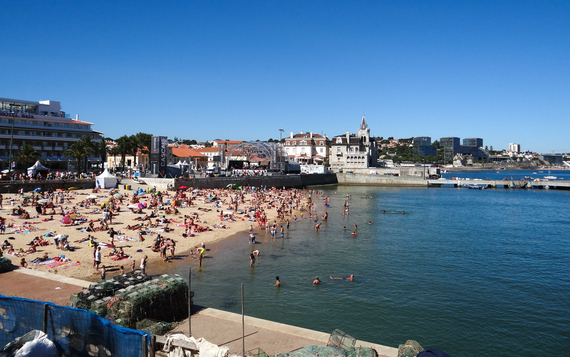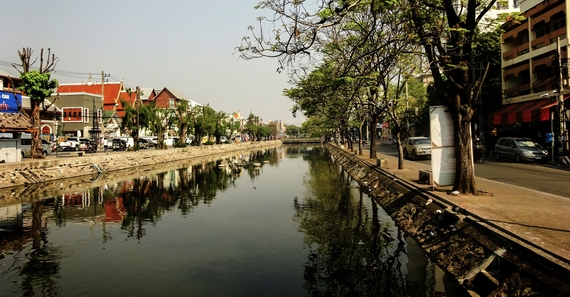More and more people, it seems, are retiring overseas than ever before, and they're doing that for many different reasons.
But all of them, no matter why they're moving abroad, have one thing in common--they're all moving away from a place and culture they're familiar with to relocate to one that's new to them.
Even if they've vacationed in the community they plan to relocate to and feel familiar with it, there is a huge difference between spending a few days, weeks, or months in a foreign culture and actually becoming a part of it.
And every U.S. and Canadian citizen (or anyone, for that matter) who pulls up stakes and moves to another country and culture will bump up against expectations and assumptions they never knew they had. Our cultural assumptions are formed from the time we're born, and most of them are unconscious. After living in a certain place for a certain amount of time, we simply get used to the way things work. We don't even think about it anymore.
Moving abroad is a great way to find out what those unconscious assumptions are and how different they can be in other countries and cultures.
So what do you need to make a successful transition? After 15 years of living abroad, we have some pointers...
There are a few fundamental things that lead to success:
1)Money... at least some. Everyplace costs something to live, even if it's a fraction of what you might be spending now, and there are always start-up costs--visa and legal fees, rental deposits, furnishing costs, etc. And even if a country has a great public health system, you may not be able to join it until you get your residence visas. And you may need emergency care sooner than you anticipate, so emergency medical funds are crucial. It's true that you really can cut your monthly budget in half or more when you retire overseas. But it doesn't happen the minute you walk off the plane. Plan ahead, and have a reserve.
2)Patience. Let us repeat that. Patience. The first thing that happens when you leave home...the place you're used to...and move to a new culture, is that things don't go as you expect. How could they? Your expectations are based on where you used to live...and you don't live there anymore. Using the telephone will be different. Going to public offices will be different. Standing in line at the grocery store will be different. Driving will be different. Passing other people walking on the street will be different. Everything will be different to some degree. If you can't be patient until you figure things out and start doing things like a local, you're going to make yourself unhappy, and you're going to make the people you have to deal with every day in your adopted country unhappy. Have patience and you'll soon adapt.
3)A sense of humor. This can be a tough one, because some people simply don't have one, but if you do, you'll find that it comes in mighty handy, especially if you can apply it to yourself. This is related to #2 above...a sense of humor makes being patient until you figure things out a lot easier. And if you can chuckle at yourself instead of blowing up at a store clerk or plumber or government official because they aren't doing things "the way we do them back home," you'll be...well, you'll be chuckling instead of blowing up. That's important.
4)A sense of perspective. This is an especially difficult one for a lot of us from the U.S. We've been told all our lives--and all of us believe on some level--that the U.S. is the greatest country on earth, and that the rest of the world wants to be just like us. It can be a shock to discover that people in other countries honestly believe that their country is the greatest on earth. And it can be an even greater shock to learn that they don't particularly aspire to be just like us. In fact, we've seen U.S. expats feel insulted when told by locals that being American isn't their life's dream. It's a big world out here, and seeing it from outside the U.S. is an eye-opener. If you don't want your eyes opened, don't move abroad.
5)Love of challenge. When you move away from your comfort zone and start living in a foreign country, every day brings a challenge of some kind. Finding the right words for "3/4 inch Philips-head wood screw" in Spanish or Portuguese or Thai can be challenging enough... Finding a store that carries them can be even more challenging. Establishing relationships with locals who can make these day-to-day challenges easier can be a challenge. Anything can be a challenge if it's something you're not familiar with and it's done in a different language. Over the years, we've learned to enjoy the challenges. Solving problems and finding solutions on a daily basis keeps you sharp, involved, engaged, and aware. Combined with patience and a sense of humor, these are the things that keep you young. If problem solving and meeting challenges doesn't interest you, moving out of your comfort zone will not be a pleasant experience for you.
6)A sense of adventure. This is probably one of the most important keys to success when you're moving overseas. We know people who have moved solely out of economic necessity--they could not afford to continue living back home, so they moved someplace more affordable. But if they could have afforded to live back home, they never would have left in the first place. These people have no particular love for, interest in, or curiosity about the culture they've moved to...they are economic refugees, plain and simple. And they are the unhappiest expats we know. They moved abroad looking for exactly what they had back home at half the cost, and they are invariably disappointed, because the rest of the world isn't just like the U.S. at half the price. The rest of the world is a collection of remarkably varied, colorful, confusing, and amazing places...if you have a sense of adventure. If you don't, it's a pain in the butt.
With these adaptive items and skills in your expat tool kit, you'll maximize your chances for a move abroad that will enhance, not just your bottom line, but every other aspect of your life as well.
Go forth and live!
This article comes to us courtesy of InternationalLiving.com, the world's leading authority on how to live, work, invest, travel, and retire better overseas.
Related Articles
The World's Best Places To Retire In 2017
4 Countries With The Best Healthcare In The World
The 5 Top Retirement Havens With The Lowest Cost Of Living


